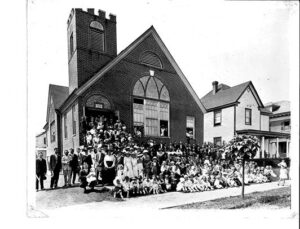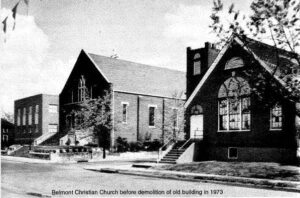As told in “Homelessness in Roanoke Raises Many Questions,” the issue perplexes many. In a nation as wealthy as the US, why do so many have no home to live in? However, taking the positive advice of “light a candle instead of curse the darkness,” the Christian organization Habitat for Humanity and a number of Roanoke Valley churches of various denominations and sizes have partnered to build a new home in Southeast as a part of their “Apostles Build 2023” program.

According to Gina Dunnavant, the Volunteer and Faith Relations Manager for Habitat for Humanity in the Roanoke Valley, the new home is located at 1023 Jamison Avenue, Roanoke 24013. The lot was previously the site of one of the first buildings for Belmont Christian Church. That congregation now meets in a bigger building located across the street in a much larger space.
In 2022, Belmont Christian sold the lot to Habitat in hopes that it would be an aid in providing safe, affordable housing to a local family. The congregation is excited that the property is being used again for a loving purpose.
Due to its location near the railyards in an age before cars were prevalent, Southeast has long been known as a largely blue-collar quadrant of Roanoke. It has been many years since Southeast has been represented on City Council. If Roanoke had a “ward system” where each part of the City voted on one guaranteed seat, similar to Roanoke County’s district system, then Southeast would always have at least one member on City Council. However, the City currently has an “at large” voting set up.
People who have lived in Roanoke for decades recall a time when Southeast had a vibrant civic life and many large churches ministered to hundreds of families.

Belmont Christian Church has long played a role in the spiritual, civic, and cultural life of Southeast. Now, with part of its old property being used to create a safe, modern home, Belmont, in partnership with other congregations, is again contributing to the shalom and wholeness of the community.
Go deeper:
Habitat-Roanoke
How Habitat for Humanity began in a small, interracial, Christian community in Georgia in 1942
–Scott Dreyer

